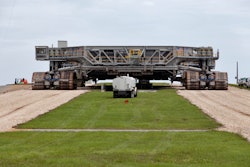Bruce Stockton watches his 3-year-old granddaughter play with her mother’s phone, and it seems to come naturally, but he said she can’t quite ride a tricycle.
Stockton, vice president of fleet services at Missouri-based Wilson Logistics, compared his granddaughter to today’s incoming truck drivers: they naturally understand technology, but they have to be trained to drive.
“There's really, to me, two categories: you've got what I'll call the mechanical side, which is physically learning how to maneuver the truck … and then there's the technology side that, with good intention, is meant to improve safety, improve quality, improve the level of service that we have to provide as a commercial vehicle operating company,” Stockton said. “I think drivers will always have to have a certain level of mechanical ability and skill to safely operate … whatever unit they’re operating … but as we add technology to trucks and trailers, they become more of a commercial vehicle operator and a little less of a commercial vehicle driver.”
Stockton, whose company is working with autonomous trucking technology provider Locomation to engineer six freight lanes for full autonomy, said that’s the way of the future for the trucking industry as widespread availability of autonomous trucks is on the horizon. He said he expects truck drivers to become more like IT professionals as their jobs shift more toward monitoring systems as a truck drives itself down the highway and curriculums change to meet those requirements.
Related: Christenson Transportation set to roll out 500 autonomous trucks
Wilson Logistics’ training curriculum has already changed as the company continuously onboards new technology.









